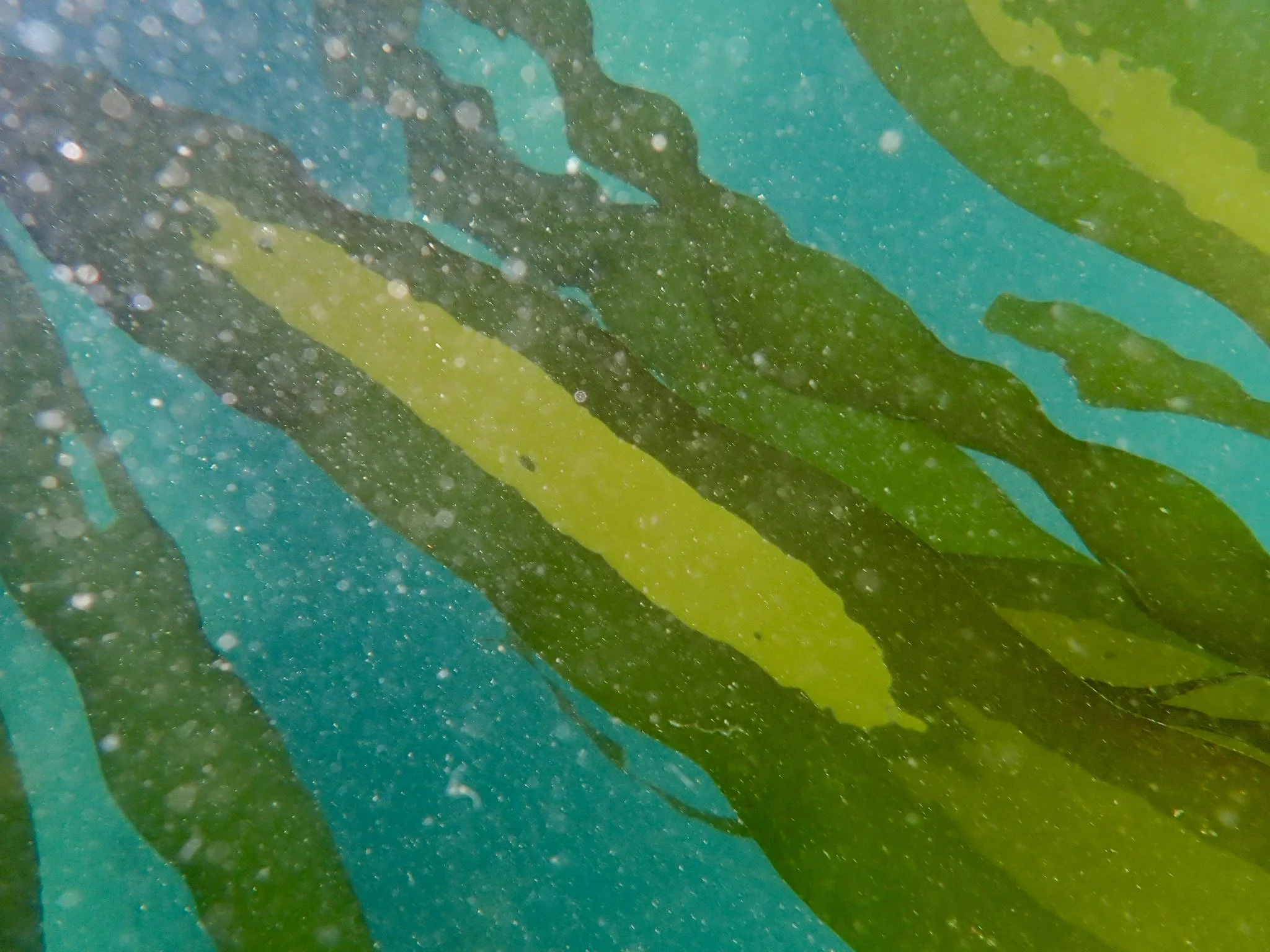KelpFest!
Regenerative Aquaculture Panel Discussion
and Seaweed Happy Hour
Sunday, October 5, 2025
3:00-5:30 PM
Noyo Center for Marine Science Field Station
32430 N. Harbor Drive in Fort Bragg
Dive deeply into the topic of regenerative aquaculture with a panel discussion hosted by the Noyo Center. The program includes scientists involved with current research programs focused on purple urchins, and the latest in recovery efforts for abalone, bull kelp, and sunflower sea stars. Noyo Center Executive Director Sheila Semans will moderate the program.
Stick around after the program for Seaweed Happy Hour and meet the scientists while you enjoy a little food and drink, including some local wines from Anderson Valley’s Minus Tide Wines, North Coast Brewing Company beer, and non-alcoholic offerings.
There is no ticket price for this event, but a suggested donation of $10 or more helps support our ability to bring you these programs.
Guest Speakers
-
Luke’s research interests broadly involve the development of sustainable aquaculture. Specifically, he is working with industry to apply advanced and emerging technologies to help solve issues limiting aquaculture growth. He has primarily used biotechnology to study physiological systems in marine organisms including reproduction, biomineralization, toxicology and nutrition.
Economically incentivizing the harvest of wild purple urchins in aquaculture can help reduce the urchin population and restore kelp forests. However, the urchins in barrens have limited economic value due to their starved state. Aquaculture can help fatten the roe in the urchins and increase their value. To do this a team of researchers, urchin divers, aquaculture farmers, and community members have been working on developing diets optimized for urchin roe growth as well as determining the ideal culture conditions to increase the quality of the roe year-round. Together this research is hoped to provide needed technology and information to jumpstart urchin ranching aquaculture and support kelp recovery.
-
Elora López-Nandam is an evolutionary biologist with research interests in the ecology, evolution, and conservation of marine ecosystems. She has used genetics to address a wide range of topics in the ocean, from sea cucumber fisheries in Fiji to coral bleaching in American Samoa. Currently, she combines genomics with aquarium husbandry for important marine animals like corals and sea stars.
Since 2022, the California Academy of Sciences has been optimizing methods to spawn and raise echinoderms, and since 2024, we have led efforts to spawn and raise the first two cohorts of sunflower sea stars in California aquariums. The interdisciplinary team includes the husbandry experts of Steinhart Aquarium and the research expertise of the Academy's biodiversity science division. By combining husbandry experiments with genetics and statistical analysis, we aim to build best practices for conservation breeding programs worldwide. The success of the first two sunflower sea star cohorts has opened new doors for the future of this species in California.
-
Dan serves as the Director for Oceans and Aquaculture with the Kashia Band of Pomo Indians, Indigenous peoples of the Sonoma Coast in Northern California. On behalf of Kashia, Dan leads several projects working to advance kelp forest restoration and Tribal aquaculture with academic, government, and non-profit partners on the West Coast of the USA. In addition to his Tribal affiliation, Dan also holds an appointment as a research scientist at the UC Davis Bodega Marine Laboratory, and he previously worked as Lead Scientist for The Cultured Abalone Farm LLC., one of California's longest running aquaculture businesses. Dan’s work is diverse and collaborative, encompassing themes of ocean food, the conservation of biological diversity, and the sovereignty of indigenous peoples. Dan will speak about the highly collaborative red abalone captive breeding program now underway.
-
Torre has been an ecologist since he could crawl. Exploring the dirt, worms, trees, snakes, and birds in his own backyard translated very well when he decided to pursue Marine Biology at Humboldt State University. His fascination with intertidal ecology led him to pursue scientific SCUBA diving, so he could gain a deeper understanding of how coastal ecosystems work.


